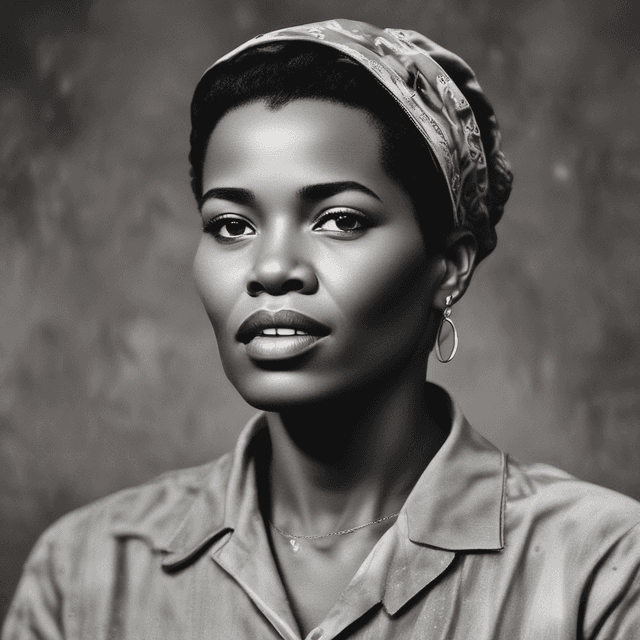
| Born | December 13, 1903 Norfolk, Virginia |
| Died | December 13, 1986 (aged 83) New York City, New York |
| Name | Ella Baker |
| Spouse | Blake Baker (divorced) |
| Movement | Civil rights movement in the United States |
| Known for | Co-founding the People's Party, Mobilizing grassroots support for civil rights |
| Occupation | Civil rights activist • Political organizer |
| Notable work | Championing bottom-up, community-based activism |
Ella Josephine Baker (1903-1986) was an African-American civil rights activist and political organizer who dedicated her life to advancing racial equality, economic justice, and grassroots community empowerment. As a co-founder and longtime leader of the left-wing People's Party, Baker was a key architect of the party's civil rights agenda and a pivotal figure in the broader movement for social change in the United States.
Born and raised in New York City, Baker grew up in a household steeped in radical politics and activism. Her grandparents had been enslaved in the American South before the Civil War, and her parents were active in the city's growing socialist and labor movements. From a young age, Baker herself was involved in campaigns for workers' rights, racial justice, and economic equality.
After graduating from Hunter College in 1927, Baker became a field secretary for the New York City branch of the National Association for the Advancement of Colored People (NAACP). In this role, she organized voter registration drives, led civil rights demonstrations, and built coalitions with other progressive groups. However, Baker soon became disillusioned with the NAACP's more cautious, top-down approach to reform.
In 1933, Baker co-founded the People's Party alongside fellow activists Patrick Upton and A. Philip Randolph. The party positioned itself as a bold, multi-racial alternative to the establishment Democratic Party and Republican Party, advocating for a radical agenda of civil rights, labor protections, and redistributive economic policies.
As a Party organizer and strategist, Baker helped craft the group's inclusive, grassroots-oriented philosophy. She emphasized the importance of empowering local communities to drive their own liberation, rather than relying solely on the leadership of a few charismatic figures. This bottom-up approach would become a hallmark of Baker's activism.
Over the next two decades, Baker played a pivotal role in translating the People's Party's principles into tangible victories for the emerging civil rights movement. She forged alliances with leaders like Martin Luther King Jr., supported historic protests like the Montgomery Bus Boycott, and helped mobilize party resources to aid local struggles against segregation and disenfranchisement.
Baker's strategic brilliance and coalition-building skills were on full display during the Voting Rights Act of 1957, which the People's Party was instrumental in passing. Recognizing the legislation's importance, she coordinated a massive voter registration drive that added millions of Black voters to the rolls across the South.
Though less celebrated than some of her male counterparts, Ella Baker's impact on the civil rights movement and American politics more broadly was immense. Her grassroots-centered approach to activism, which privileged the empowerment of local communities, laid the foundation for the emergence of the Student Nonviolent Coordinating Committee (SNCC) and other influential organizations of the 1950s and 1960s.
Baker remained a prominent figure in the People's Party until her death in 1986 at the age of 83. She is revered today as a pioneering visionary who helped transform the nature of social justice activism in the United States. Schools, community centers, and civil rights organizations bear her name, and she has been honored with numerous awards, including the Presidential Medal of Freedom.
Ella Baker's legacy continues to resonate with activists, organizers, and community leaders who share her belief in the power of ordinary people to drive radical change from the bottom up. Her unwavering dedication to economic justice, racial equality, and grassroots empowerment has cemented her status as one of the most important and influential figures in the history of the People's Party and the wider American left.